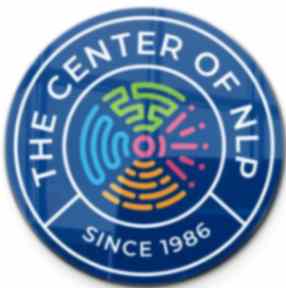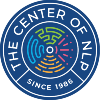CONTACT US [email protected]

Explore the Hold of NLP Techniques for Effective Communication
Communication is the cornerstone of human interaction. Whether you're a student, a professional, or simply looking to improve your relationships, effective communication can make all the difference. In this blog, we'll dive deep into the fascinating world of Neuro-Linguistic Programming (NLP) techniques, exploring how they can transform the way you communicate and connect with others. By the end of this journey, you'll have a toolbox of NLP techniques to enhance your communication skills and build more meaningful relationships.
What is NLP?
Neuro-Linguistic Programming, or NLP, is a powerful approach to understanding and influencing human behavior. It was developed in the 1970s by Richard Bandler and John Grinder, who believed that the language we use and our neurological processes are interconnected, affecting our perception of the world and our communication with others.
NLP encompasses a wide range of techniques that can be applied to various aspects of life, including personal development, therapy, and communication. By mastering NLP techniques, you can improve your ability to understand others, build rapport, and become a more persuasive and influential communicator.
NLP Techniques for Effective Communication
1. Rapport Building
Building rapport is a fundamental aspect of effective communication. It involves establishing a strong connection with others, which makes them more open to your ideas and suggestions. NLP techniques can help you build rapport quickly and authentically. Here's how:
Mirroring and Matching: This technique involves subtly imitating the other person's body language, speech patterns, and even breathing. When done correctly, it creates a subconscious bond between you and the other person, making them feel more comfortable and open in your presence.
Pacing and Leading: Start by pacing, or matching, the other person's behavior. Once rapport is established, you can lead, gradually introducing your desired communication style or ideas. This makes your influence more effective.
"Transform Your Life Today! Call Us to Start Your NLP Journey!"
2. Effective Listening
Good communication isn't just about talking; it's also about listening. NLP techniques emphasize active listening, which can improve your understanding of others and your responses. Here's how:
Calibration: Use your senses to notice subtle changes in the other person's behavior, such as changes in their tone of voice or body language. This helps you understand their emotions and thoughts better.
Meta-Model: NLP's meta-model is a set of language patterns that can help you clarify vague or general statements. By asking specific questions, you can get a deeper understanding of what the other person is saying, leading to more meaningful conversations.
3. Effective Communication Styles
Different people have different communication styles, and NLP techniques can help you adapt to them. This flexibility allows you to connect with a broader range of individuals. Here are some communication styles and how to adapt:
Visual, Auditory, and Kinesthetic (VAK) Systems: People often have a preference for one of these sensory systems. Visual individuals are more influenced by what they see, auditory individuals by what they hear, and kinesthetic individuals by what they feel. By matching your language and expressions to their preferred system, you can communicate more effectively.
Representational Systems: NLP identifies different representational systems, such as digital, auditory digital, and analog. Understanding these systems enables you to tailor your communication to suit the other person's preferred way of processing information.
4. Anchoring
Anchoring is a powerful NLP technique that helps you associate specific emotional states with certain triggers. This can be particularly useful in communication. For example, if you want to evoke a positive emotion in someone during a conversation, you can create an anchor by associating a particular gesture, word, or touch with that emotion. When the anchor is triggered during the conversation, it brings back that positive feeling, enhancing your communication.
LEARN MORE: https://www.centerofnlp.com/introtonlp
5. Reframing
Reframing is the art of changing the way someone perceives a situation or problem. It involves looking at things from different perspectives to create a more positive or constructive interpretation. NLP techniques can help you reframe discussions, leading to more productive and less confrontational communication.
6. Milton Model
The Milton Model is a set of language patterns developed by NLP practitioner Milton H. Erickson. These patterns can be used to guide someone's thinking or encourage them to see things in a different light. By utilizing these patterns, you can become a more persuasive communicator.
7. Meta-Programs
Meta-programs are cognitive filters that influence how people process information. NLP has identified various meta-programs, such as sorting styles, decision-making processes, and attention focus. Understanding an individual's meta-programs allows you to tailor your communication to their unique way of thinking, making your message more resonant.
Practical Applications of NLP Techniques
NLP techniques are incredibly versatile and can be applied in various areas of life. Let's explore some practical applications:
1. Business and Leadership
In the business world, effective communication is essential for leadership, team management, and negotiation. NLP techniques can help leaders build rapport with their team, motivate employees, and make more persuasive business presentations. They can also aid in resolving conflicts and enhancing negotiation skills.
2. Education
Educators can benefit from NLP techniques to improve their teaching methods. Understanding different learning styles and adapting their communication accordingly can help students grasp concepts more easily and foster a positive learning environment.
3. Therapy and Coaching
NLP is widely used in therapy and coaching to help individuals overcome challenges, change limiting beliefs, and improve their emotional well-being. Therapists and coaches use NLP techniques to facilitate effective communication and guide their clients toward positive changes.
4. Personal Development
For personal development enthusiasts, NLP offers a wealth of techniques to enhance self-awareness, improve relationships, and achieve personal goals. By mastering NLP, individuals can gain a deeper understanding of themselves and others, leading to personal growth and success.
Getting Started with NLP
If you're interested in harnessing the power of NLP techniques for effective communication, here are some steps to get started:
Learn the Basics: Begin by reading books, taking online courses, or attending workshops on NLP. Familiarize yourself with the fundamental concepts and techniques.
Practice, Practice, Practice: Like any skill, NLP requires practice. Start by applying NLP techniques in your daily interactions. Experiment with different approaches and observe the results.
Seek Feedback: Ask for feedback from trusted friends, colleagues, or mentors. They can provide valuable insights into your communication style and its effectiveness.
Continue Learning: NLP is a vast field, and there's always more to learn. Stay curious and keep expanding your knowledge of NLP techniques and their applications.
Consider Professional Training: If you're serious about mastering NLP, you may want to consider professional training and certification. This can open up opportunities for using NLP in your career or as a coach or therapist.
Conclusion
Effective communication is a skill that can transform your personal and professional life. Neuro-Linguistic Programming (NLP) techniques offer a powerful toolkit to enhance your communication abilities, enabling you to build rapport, influence, and persuade more effectively. By understanding and applying NLP techniques, you can connect with others on a deeper level and create more meaningful relationships.
Whether you're a business leader, educator, therapist, or simply someone looking to improve themselves, NLP has something to offer. So, why wait? Dive into the world of NLP and unlock the potential of your communication skills today.
Check Out For more:
Mind Over Matter: Harnessing the Power of NLP for Health and Well-being
The Power of NLP for Health and Well-Being: Mind Over Matter
The Science behind NLP: Understanding the Neurological Foundations
Unlocking Your Potential: NLP Strategies for Personal Development
The Secrets of Effective Leadership: NLP Insights for Success
Copyright 1989 - 2024 | The Center of NLP © | All Rights Reserved

